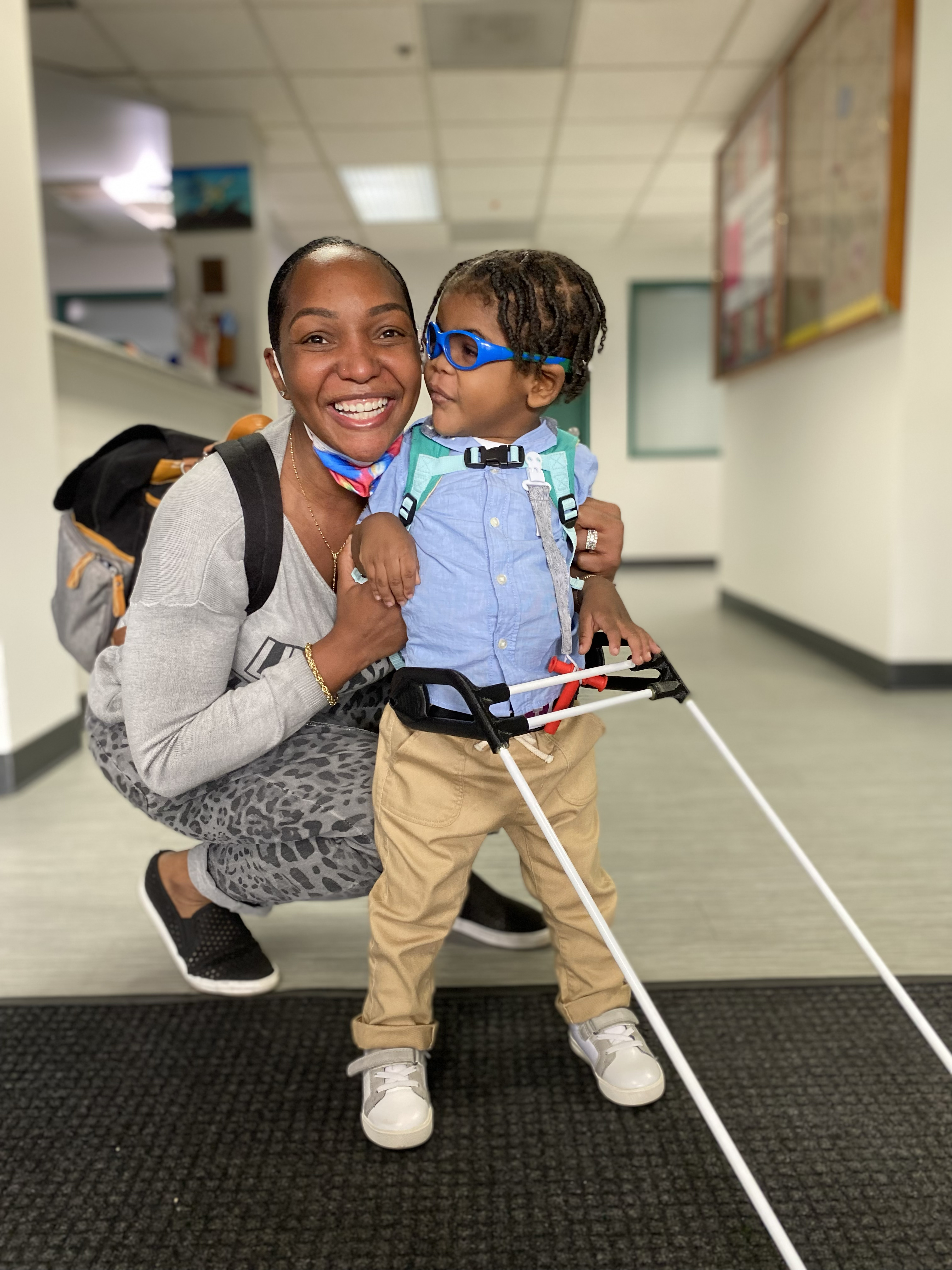Wayfinder’s Child Development Services program provides a wide range of services for children, birth to age 3, with visual impairments and/or other disabilities in Northern, Central and Southern California. Fill out our Child Development Services Referral Form to receive more information.

“The longer we are with Wayfinder, the more independence and freedom that Axton has,” says Arlisha, mother of 4-year-old Axton, who receives Wayfinder’s Child Development Services.
Axton is a happy, funny, affectionate boy. He was born with an exceedingly rare genetic disorder. “The doctors couldn’t tell me much,” Arlisha says. “There are only three cases in the literature.” After he was born, baby Axton spent seven months in the neonatal intensive care unit. He came home with a feeding tube because he has difficulty swallowing. He has chronic lung disease and is developmentally delayed. He cannot see in one eye, and the other is misaligned.
Because Axton does not speak, he uses American Sign Language to communicate with his family. Arlisha and Axton’s adoring older sisters, Alyssa and Alaia, already knew ASL before Axton was born. “So we were well-equipped,” Arlisha recalls.
At age 2, Axton entered our Child Development Services to address his vision challenges. Because Axton doesn’t talk, Arlisha wondered how much he could see. “I noticed that he never looked in the direction if you pointed,” she says. He bumped into things because he did not see them in his path.
Vilay, an experienced Wayfinder specialist, explained that without vision in one eye, Axton does not have depth perception, making it difficult for him to navigate stairs or walk from pavement to grass. He is far-sighted, so objects near him appear blurry.
Vilay taught Arlisha how to use auditory cues like tapping the wall where Axton needs to put his hand to feel his way or tapping the floor where he needs to put his foot. “Tapping has been a big help,” Arlisha says. “With the knowledge that I get from Vilay, I am more equipped to help him.”
Vilay is working with Axton on matching shapes and touching parts of his body, like his arm or ear, when prompted. He loves his iPad, on which he watches educational videos about colors, numbers and sign language. His favorite thing is using his iPad to listen to music. Arlisha thinks his love for music comes from the music therapy they received in the neonatal intensive care unit.
Recently, Axton got a belt cane, which is a rectangular frame that attaches to a special belt around his waist. The base of the device slides along the floor in front of Axton so that it encounters obstacles before he does. The belt cane will help Axton walk independently and safely.
Also, Vilay and Arlisha are teaching Axton to walk down stairs. “He has learned to turn his foot inward to feel the step,” Arlisha says. “That is very helpful since he cannot see his way, or at least not clearly.” As Axton learns to adapt to his disabilities, he is gaining confidence.
“My hopes for the future are that Axton is safe, happy and accepted. And that he reaches his full potential, whatever that may be,” says Arlisha.
As for her family’s experience with our program, Arlisha declares, “There should be more Wayfinders and more Vilays. Because Wayfinder has made a difference.”
About Wayfinder Family Services
Formerly known as Junior Blind, Wayfinder Family Services is the place to turn for people facing the greatest challenges. The organization provides expert, individualized support and services to children, youth, adults and families—from people with vision loss and developmental disabilities to children in need of temporary shelter, foster care and adoption.
Give today! Your generosity to Wayfinder gives the gift of independence to Axton and hundreds of other children who have visual or multiple disabilities.
May 25, 2023


